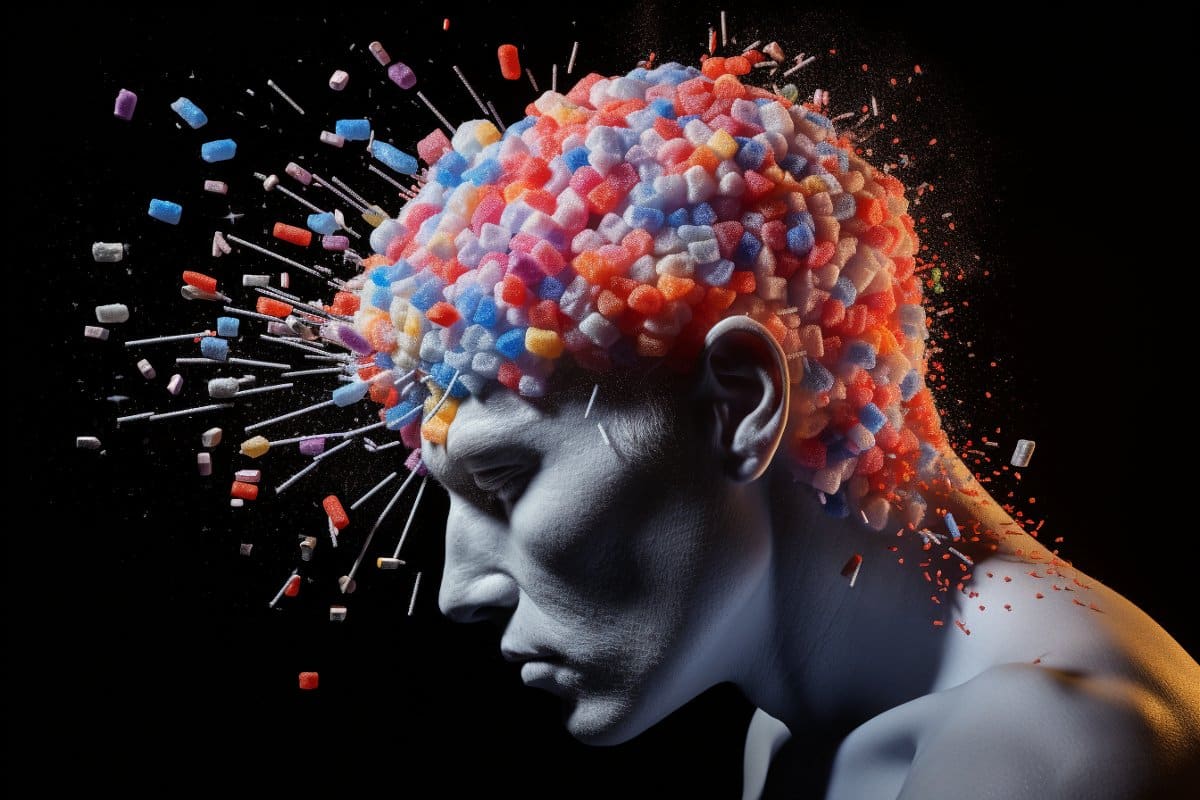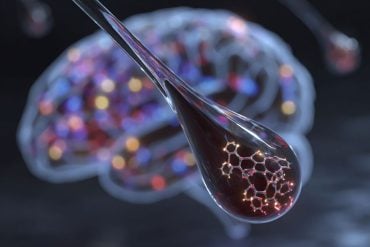Summary: Researchers revealed, through neuroimaging, how cocaine addiction modifies the brain’s reward evaluation system, impacting adaptive behavior. This modification explains the perplexing addictive behavior seen in users—persisting in harmful activities that often don’t offer immediate benefits.
The primary focus was on “reward prediction errors,” and how substances like cocaine influence these brain computations. This understanding could pave the way for more effective addiction treatments.
Key Facts:
- Chronic cocaine use disrupts the brain’s mechanism for evaluating potential rewards from different outcomes, weakening an error signal essential for adaptive behavior.
- Cocaine users exhibited riskier strategies in decision-making games and displayed weaker neural error signals in response to unexpected rewards or their absence.
- Despite these significant findings, researchers stress that their snapshot of the brain at one point in time can’t establish causation and that longitudinal studies would be more conclusive.
Source: Rutgers University
Rutgers researchers have used neuroimaging to demonstrate that cocaine addiction alters the brain’s system for evaluating how rewarding various outcomes associated with our decisions will feel. This dampens an error signal that guides learning and adaptive behavior.
The observed changes likely propagate a mysterious aspect of some addictive behavior—the tendency to keep doing harmful things that sometimes have no immediate benefit. Those changes also make it harder for long-term users of cocaine to correctly estimate how much benefit they’ll derive from other available actions.

Experts have long hypothesized that cocaine and other addictive substances can influence “reward prediction errors,” a computation the brain performs to guide learning about what is valuable in one’s environment.
The substances were thought to increase reward prediction errors by interfering with the neurotransmitter dopamine’s activity, but concrete evidence for alterations in this critical brain function in people with chronic cocaine addiction has eluded researchers.
The new study, which appears in Neuron, provides strong evidence and could suggest new strategies for treating addiction in general and cocaine addiction in particular.
“The brain has sophisticated mechanisms for predicting which behaviors will bring us pleasure and pain, for updating predictions that prove incorrect and for learning how rewarding different behaviors actually are,” said lead author Anna Konova, a psychiatry professor who leads a research lab at the Rutgers University Behavioral Health Care and Brain Health Institutes.
“This sort of learning from experience is one of the most important things people do. It’s why you don’t touch a hot stove more than once. This study demonstrates that people with chronic cocaine-use disorders could struggle to learn in this way.
“It also shows why they struggle, and, hopefully, this understanding of the underlying mechanism will lead to better treatment options,” said Rita Goldstein, Mount Sinai Professor in Neuroimaging of Addiction at the Icahn School of Medicine who is senior co-corresponding author on the study.
The researchers studied the brain’s prediction error mechanism by recruiting people who had been using cocaine for an average of 18 years and asking them to play simple decision-making games (with small monetary rewards that could be received either for sure or by chance) — all while undergoing a functional magnetic resonance imaging (fMRI) scan. The researchers then asked the same of another group of participants who had never used cocaine but resembled the first group in many other ways.
The group of participants that had used cocaine consistently pursued riskier playing strategies. They also had lower neural error signals when an unexpected reward was delivered or omitted as a result of those riskier decisions.
The brain’s response to mistaken predictions, the response needed to encode an error’s occurrence and avoid repeating it, was significantly lower among the cocaine-using group than among the other participants.
Such findings strongly implicate the physiological effects of chronic cocaine use on the observed differences in brain function, but the researchers note that a snapshot of brain function at a single point in time cannot prove causation. Only a study measuring brain structure and function over time, starting before the onset of cocaine use, would be able to test hypotheses about cause and effect.
That said, Konova and Goldstein believe the study results provide strong new evidence about one cause of cocaine addiction and the changes it creates in user behavior. They also hope a greater understanding of the underlying mechanisms may help develop treatment options, which remain limited.
“Although this basic science study does not have any immediate implications for public health or treatment, researchers can build on these findings to explore new treatments and prevention strategies,” Konova said.
“Specifically, our findings suggest that interventions that aim to boost the impact of the outcomes of one’s decisions (the perception of received rewards) may be a valuable strategy to normalize prediction error signaling and learning from experience in addiction.”
About this addiction and neuroscience research news
Author: Andrew Smith
Source: Rutgers University
Contact: Andrew Smith – Rutgers University
Image: The image is credited to Neuroscience News
Original Research: Open access.
“Reduced neural encoding of utility prediction errors in cocaine addiction” by Anna Konova et al. Neuron
Abstract
Reduced neural encoding of utility prediction errors in cocaine addiction
Highlights
- We measured a subjective reward signal linked to dopamine—utility prediction error
- People with cocaine addiction had reduced encoding of utility prediction error
- Prediction error deficits occur in the ventral striatum and orbitofrontal cortex
- Encoding of received but not expected reward drives prediction error deficits
Summary
Influential accounts of addiction posit alterations in adaptive behavior driven by deficient dopaminergic prediction errors (PEs), signaling the discrepancy between actual and expected reward.
Dopamine neurons encode these error signals in subjective terms, calibrated by individual risk preferences, as “utility” PEs. It remains unclear, however, whether people with drug addiction have PE deficits or their computational source.
Here, using an analogous task to prior single-unit studies with known expectancies, we show that fMRI-measured PEs similarly reflect utility PEs.
Relative to control participants, people with chronic cocaine addiction demonstrate reduced utility PEs in the dopaminoceptive ventral striatum, with similar trends in orbitofrontal cortex.
Dissecting this PE signal into its subcomponent terms attributed these reductions to weaker striatal responses to received reward/utility, whereas suppression of activity with reward expectation was unchanged.
These findings support that addiction may fundamentally disrupt PE signaling and reveal an underappreciated role for perceived reward value in this mechanism.







